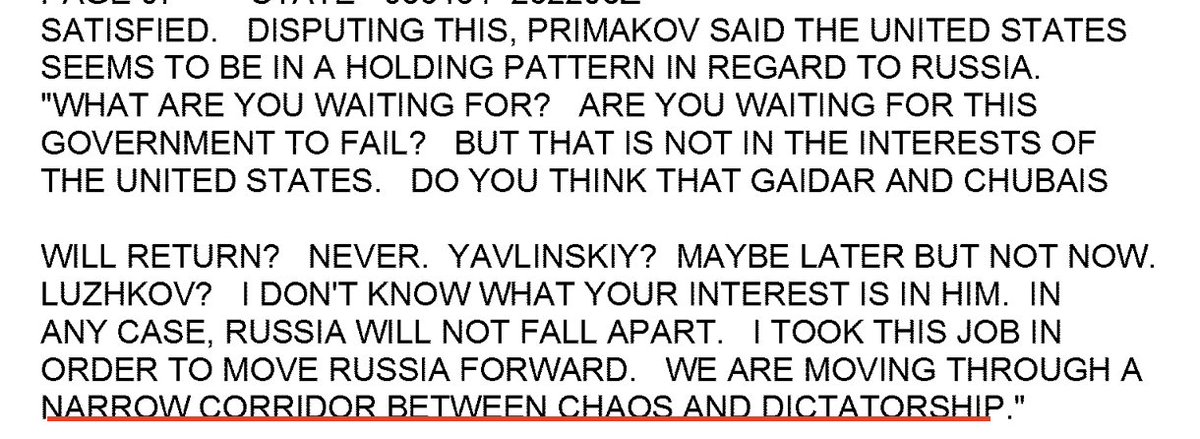
Some people have criticised my negative assessment of Catherine Belton's engagement with her sources, suggesting that I selectively pointed to one or two dubious sources. I am receptive to this criticism; therefore, I am running another thread (the last one, I promise).
This thread is about Belton's claim that the KGB siphoned off billions of dollars from the Soviet economy in the final days/months of the Soviet regimes. Where do we find this claim? Right here. 

This is then followed by a discussion of how "trusted custodians" would handle the party cash via KGB channels, etc. - this part cites from dubious documents, which I already discussed in an earlier thread.
https://twitter.com/DrRadchenko/status/1317429068200091652?s=20.
But what other sources does Belton use in her discussion of the "billions" in party funds that were allegedly siphoned off by the KGB in the dying days of the Soviet regime. Well, one source is this 2007 documentary by Sovershenno Sekretno. .
This documentary is cited 7 times. Is this a lot? Yeah, I'd say this is a lot, so let's take a look at what it actually is. If you know the sensationalist style of Russian conspiracy theory documentaries, you'll of course immediately recognise it.
The documentary starts out with the premise similar to Belton's - that tons of gold were siphoned off, presumably by the KGB. The key witness btw is Artem Tarasov, the scandalous Soviet "first millionaire" who also published memoirs.
It's Tarasov who makes the claim at about [05:00] regarding 1200 tons of gold "disappearing" under Gorbachev. He also makes various other interesting claims.
I came across Tarasov during my research on Unwanted Visionaries. See here: amazon.com/Unwanted-Visio…. I contested his claim that Gorbachev promised to sell the Kuriles to the Japanese for $200 billion.
Archival documents show that the Japanese did try to "buy" the islands for about $28 billion but that Gorbachev firmly rejected this approach. In any case, seeing Tarasov as a key witness in this documentary raised my alert level (in fact another interviewee also ridiculed him).
Then the documentary recites some ground that Belton also goes over, including the idea of "trusted custodians". No documents are actually presented to confirm these claims. So, overall, this part is mainly a conspiracy theory-style stuff.
Indeed, as much as the documentary is full of far-fetched claims about gold being siphoned off (with repeated images of unrelated golden ingots), the authors of the documentary ultimately suggest that it's a myth.
Instead, towards the end the discussion focuses on the corruption of early- to mid-1990s, when, indeed millions were being siphoned off (but that's a different story - the story of corruption in modern-day Russia).
I find it ironic that even a sensationalist documentary that deals in hearsay pedals back from selling a conspiracy theory, involving the KGB and the non-existent party gold, but that Belton effectively endorses this conspiracy theory.
As for the idea that the International Department of the Soviet Communist Party financed overseas Communist parties - that's a well-known fact, and we can do without conspiracy theories (or discussion of "shredded documents") to get to the bottom of it.
Many of the relevant documents are now available at RGANI (Russian State Archive for Contemporary History) in Fond 89 - and they are completely open to researchers. But that was not the same as creating shell companies to preserve party cash or what have you.
Anyway, I hope I have not tired you with my threads on sources, but since people are questioning my credentials as a professional historian, I feel the need to explain my takes. I think this is a productive exercise that will highlight the need to closely scrutinise your sources.
• • •
Missing some Tweet in this thread? You can try to
force a refresh










